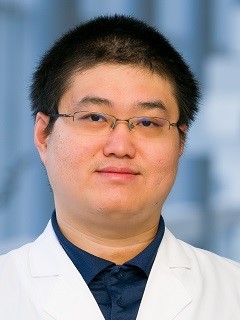
| E-mail: kegong@whu.edu.cn |
Biography
Dr. Ke Gong is a Professor in the Department of Immunology at Taikang Medical School (School of Basic Medical Sciences) of Wuhan University, and a Principal Investigator at Taikang Center for Life and Medical Sciences of Wuhan University.
He earned his Ph.D. from the College of Life Sciences at Wuhan University. Subsequently, he undertook postdoctoral research at Emory University and UT Southwestern. Prior to joining Wuhan University, he served as an instructor at UT Southwestern.
Dr. Gong’s research has long been dedicated to basic science of cancer therapy. Currently, his research interests focus on the mechanisms underlying resistance to cancer treatment.
Research
Currently, precision therapy for tumors is facing two major challenges. Targeted cancer therapies, represented by Tyrosine Kinase Inhibitors (TKIs), have shown significant clinical efficacy. However, both acquired and primary resistance remain inevitable. Cancer immunotherapy, typified by Immune Checkpoint Inhibitors (ICIs), yet confronts challenges of therapeutical resistance and adverse effects.
We hold the view that oncogenes and tumor suppressor genes may shift their roles and exhibit different or even opposing functions under different conditions, providing a plausible explanation for the spectrum of responders, non-responders/resistant, and toxicities observed in cohort studies. Additionally, therapy interventions may alter the structure and function of targeted or associated genes, leading to the development of resistance.
Our research group is dedicated to addressing the clinical challenges associated with cancer therapy resistance. We utilize an in-house methodology based on clinical data analysis and several paradoxical models to identify conditionally resistant genes that undergo a functional switch between promoting and inhibiting cancer, followed by exploring the mechanisms. Currently, our research interests are around understanding the therapeutical resistance in common cancers on lung, breast, liver, and brain, mediated by signaling pathways involving inflammation, immune-related cytokines, metabolites, neurotransmitters, and other relevant factors. We aim to develop combination treatment strategies to overcome resistance, pioneering for personalized, precise, predictive, and patients-drugs-matched medical approach for cancer treatment, ultimately extending the survival of patients with various tumor types.
Representative Publications
1. Ke Gong#, Gao Guo, Nicole A. Beckley, Xiaoyao Yang, Yue Zhang, David E. Gerber, John D. Minna, Sandeep Burma, Dawen Zhao, Esra A. Akbay & Amyn A. Habib* Comprehensive targeting of resistance to inhibition of RTK signaling pathways by using glucocorticoids. Nature Communications. 2021 12:7014 (Processed to a Phase II Clinical Trial: NCT04497584)
2. Ke Gong#, Gao Guo, Nishah Panchani, Matthew E. Bender, David E. Gerber, John D. Minna, Farjana Fattah, Boning Gao, Michael Peyton, Kemp Kernstine, Bipasha Mukherjee, Sandeep Burma, Cheng-Ming Chiang, Shanrong Zhang, Adwait Amod Sathe, Chao Xing, Kathryn H. Dao, Dawen Zhao, Esra A. Akbay, and Amyn A. Habib* EGFR inhibition triggers an adaptive response by co-opting antiviral signaling pathways in lung cancer. Nature Cancer. 2020 1(4): 394–409. (Highlighted by Nature Cancer,Cancer Discovery and Nature Reviews Cancer)
3. Ke Gong#, Gao Guo#, David E Gerber, Boning Gao, Michael Peyton, Chun Huang, John D Minna, Kimmo J Hatanpaa, Kemp Kernstine, Ling Cai, Yang Xie, Hong Zhu, Farjana J Fattah, Shanrong Zhang, Masaya Takahashi, Bipasha Mukherjee, Sandeep Burma, Jonathan Dowell, Kathryn Dao, Vassiliki A Papadimitrakopoulou, Victor Olivas, Trever G Bivona, Dawen Zhao, Amyn A Habib*. TNF-driven adaptive response mediates resistance to EGFR inhibition in lung cancer. Journal of Clinical Investigation. 2018 128(6):2500-2518 (#Co-first author)
4. Ke Gong#*, Gao Guo, Nicole Beckley, Yue Zhang, Xiaoyao Yang, Mishu Sharma, Amyn A.Habib* Tumor necrosis factor in lung cancer: Complex roles in biology and resistance to treatment. Neoplasia. 2021 23(2):189-196
5. Zhi-Hao Wang#, Ke Gong#, Xia Liu, Zhentao Zhang, Xiaoou Sun, Zheng Wei, Shan Yu, Fredric P Manfredsson, Ivette Sandoval, Peter Johnson, Jianping Jia, Jian-Zhi Wang, and Keqiang Ye* C/EBPβ regulates Delta-secretase expression and mediates pathogenesis in mouse models of Alzheimer’s Disease. Nature Communications. 2018 9(1):1784 (#Co-first author)
6. Ke Gong#, Zhenxing Zhang, Yicheng Chen, Hong-Bing Shu, Wenhua Li* Extracellular signal-regulated kinase, receptor interacting protein, and reactive oxygen species regulate shikonin-induced autophagy in human hepatocellular carcinoma. European Journal of Pharmacology. 2014 738:142-52
7. Ke Gong#, Chao Chen#, Yao Zhan, Yan Chen, Zebo Huang, Wenhua Li*. Autophagy-related gene 7 (Atg7) and reactive oxygen species (ROS)/extracellular-signal-regulated kinase (ERK) regulate tetrandrine-inducedautophagy in human hepatocellular carcinoma. Journal of Biological Chemistry.2012, 287:35576-88 (#Co-first author)
8. Ke Gong#, Jia Xie, Hong Yi, Wenhua Li*. CS055 (Chidamide/HBI-8000), a novel histone deacetylase inhibitor, induces G1-arrest, ROS-dependent apoptosis and differentiation in human leukemia cells. Biochemical Journal. 2012, 443:735-46
9. Ke Gong#, Wenhua Li* Shikonin, a Chinese plant-derived naphthoquinone, induces apoptosis in hepatocellular carcinoma cells through reactive oxygen species: A potential new treatment for hepatocellular carcinoma. Free Radical Biology and Medicine. 2011, 51:2259-71.
10. Gao Guo#, Ke Gong, Nicole Beckley, Yue Zhang, Xiaoyao Yang, Rati Chkheidze, Kimmo J Hatanpaa, Tomas Garzon-Muvdi, Prasad Koduru, Arifa Nayab, Jennifer Jenks, Adwait Amod Sathe, Yan Liu, Chao Xing, Shwu-Yuan Wu, Cheng-Ming Chiang, Bipasha Mukherjee, Sandeep Burma, Bryan Wohlfeld, Toral Patel, Bruce Mickey, Kalil Abdullah, Michael Youssef, Edward Pan, David E Gerber, Shulan Tian, Jann N Sarkaria, Samuel K McBrayer, Dawen Zhao, Amyn A Habib* EGFR ligand shifts the role of EGFR from oncogene to tumour suppressor in EGFR-amplified glioblastoma by suppressing invasion through BIN3 upregulation. Nature Cell Biology. 2022, 24:1291–1305
11. Guo G#, Gong K, Puliyapaddamba VT, Pan E, Mukherjee B, Damanwalla Z, Bharia S, Hatanpaa KJ, Zhao D, Burma S, and Habib AA* Efficacy of EGFR plus TNF inhibition in a preclinical model of temozolomide-resistant glioblastoma. Neuro-Oncology. 2019, 10(1):5108
12. Guo G#, Gong K, Ali S, Ali N, Shallwani S, Hatanpaa KJ, Pan E, Mickey B, Burma S, Wang DH, Kesari S, Sarkaria JN, Zhao D, Habib AA* A TNF-JNK-Axl-ERK signaling axis mediates primary resistance to EGFR inhibition in glioblastoma. Nature Neuroscience. 2017, 20(8):1074-1084